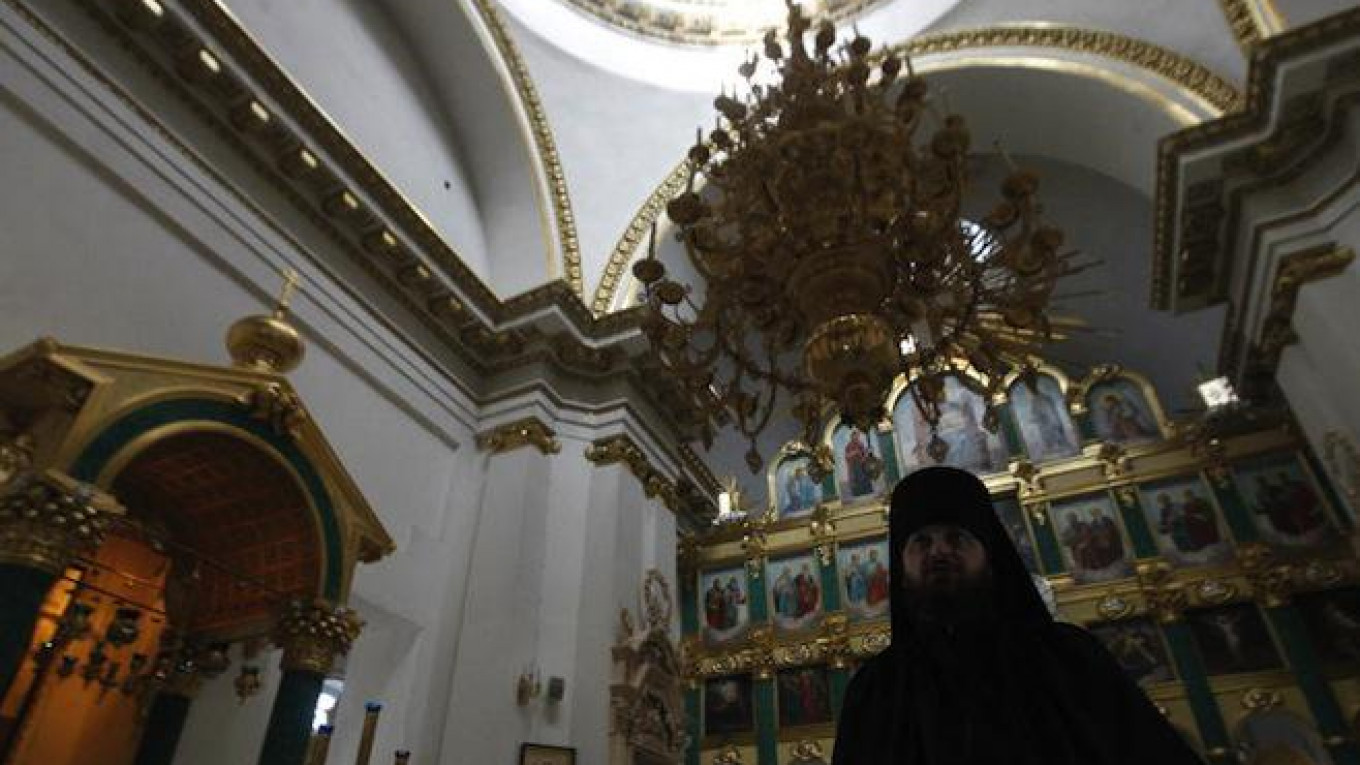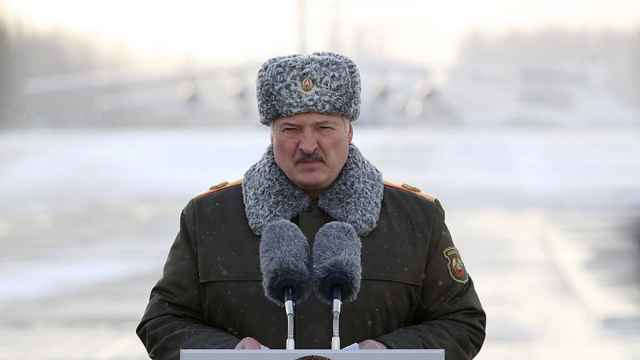Thousands of women in Ukraine, Russia and Belarus have taken to social media to share their experiences of sexual violence in an online flash mob under the hashtags #янебоюсьсказати and #янебоюсьсказать (I am not afraid to speak) started by Ukrainian social activist Anastasia Melnichenko.
Russia has responded, with the Russian Orthodox Church at the forefront.
Archpriest Dmitry Roschin, head of the synodal department for church governance with the public and the media, advised women participating in the online flash mob to turn to priests instead of posting their stories on Facebook. According to Roschin, the sexual harassment narratives these women share on social media could be then used against them.
“The church provides a worldview that has answers to all questions of human life,” Roschin was quoted saying by news website paperpaper.ru on Thursday. “That being said, the right to participate in the movement still belongs to everyone.”
Hieromonk Makary, host of the online project “Questions for a Priest,” believes that there is certain information, particularly stories of sexual violence, which should not be divulged to the general public, but to psychologists, police or priests.
“Any priest can conduct an educational and therapeutic conversation,” Makary said, the state-run RIA Novosti news agency reported Wednesday.
Makary said that some female activists suffer from “exhibitionism— particularly with sexual, social and other roots.” He added that these flash mobs qualify as exhibitionism and should not be disclosed to the public, RIA Novosti reported.
On July 14, Facebook suspended the account of Melnichenko.
“[Facebook administrators] sent me a notification yesterday, saying that I'd supposedly posted something that doesn't comply with Facebook's rules. And then it turned out that my account had been suspended temporarily, to check to make sure it's not fake,” Melnichenko said, the Meduza news website reported.
Melnichenko suspects that this was probably due to a barrage of coordinated complaints about her account made by Facebook users, according to the news source. “It's clear that this is connected to the flash mob,” she told Meduza. “It's just that Facebook is my personal mass-media outlet. I use it to communicate with the world, and so I'm in a state of mild panic right now.”
A Message from The Moscow Times:
Dear readers,
We are facing unprecedented challenges. Russia's Prosecutor General's Office has designated The Moscow Times as an "undesirable" organization, criminalizing our work and putting our staff at risk of prosecution. This follows our earlier unjust labeling as a "foreign agent."
These actions are direct attempts to silence independent journalism in Russia. The authorities claim our work "discredits the decisions of the Russian leadership." We see things differently: we strive to provide accurate, unbiased reporting on Russia.
We, the journalists of The Moscow Times, refuse to be silenced. But to continue our work, we need your help.
Your support, no matter how small, makes a world of difference. If you can, please support us monthly starting from just $2. It's quick to set up, and every contribution makes a significant impact.
By supporting The Moscow Times, you're defending open, independent journalism in the face of repression. Thank you for standing with us.
Remind me later.






